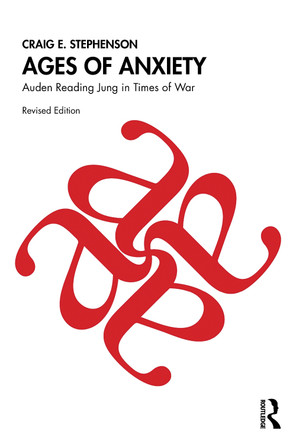Description
Anteros: A Forgotten Myth explores how the myth of Anteros disappears and reappears throughout the centuries, from classical Athens to the present day, and looks at how the myth challenges the work of Freud, Lacan, and Jung, among others. It examines the successive cultural experiences that formed and inform the myth and also how the myth sheds light on individual human experience and the psychoanalytic process.
Topics of discussion include:
- Anteros in the Italian Renaissance, the French Enlightenment and English Modernism
- psychologizing Anteros: Freud, Lacan, Girard, and Jung
- three anterotic moments in a consulting room.
This book presents an important argument at the boundaries of the disciplines of analytical psychology, psychoanalysis, art history, and mythology. It will therefore be essential reading for all analytical psychologists and psychoanalysts as well as art historians and those with an interest in the meeting of psychoanalytic thought and mythology.
About the Author
Craig E. Stephenson is a graduate of the C.G. Jung Institute Zurich, the Institute for Psychodrama, Zumikon, and the Centre for Psychoanalytic Studies, University of Essex. His most recent book is Possession: Jung's Comparative Anatomy of the Psyche (Routledge, 2009).
Reviews
"Stephenson builds, in true anterotic fashion, his own counterargument to any assumption that all he is talking about is the "fulfillment of Eros". He is able to show... that Anteros is a shape-shifter whose elusive nature is changed each time a new generation takes up the effort to interpret his presence on the erotic scene. ... Toward the end of this rich and beautifully written book, Stephenson, drawing from his work as a Jungian analyst, offers clinical vignettes of a depth and delicacy that must be read to appreciate how resonant they are to the possibilities of that aspect of the therapeutic relationship that analysts have long been taught simply to regard as "resistance". ... The attention [he] gives to Anteros in the clinical setting does the service that the late James Hillman so often demanded of depth psychology: "saving" the phenomena it purports to understand. Stephenson recognizes that what analytical psychologists have always been taught to respect - the feelings, language, imagery, and interaction style that epitomize the psyche of a patient - most lets us realize our desire to help when it insists, anterotically, on its irreducible nature." - John Beebe, Spring Journal, 2013
"This book combines acute psychological insight and aesthetic sensitivity with consummate scholarship: a love of learning and a subtle interpretative intellect are evident on every page." - Paul Bishop, University of Glasgow, UK
"A masterful book. The animating idea is brilliant, and the scholarly reach is both expansive and precise. Anteros culminates in three case studies which Stephenson brings from his clinical practice: a perfect linking of the archaic and the modern, the theoretical and the everyday." - Wendy Lesser, Editor of The Threepenny Review, author of Music For Silenced Voices: Shostakovich and His Fifteen Quartets
"In the great tradition of Jane Harrison's studies of early Greek religion, Craig Stephenson's elegant book narrates an intellectual detective story that originates in Ancient Greece and spans the centuries." - Tom Singer, Author/Editor of The Cultural Complex: Contemporary Jungian Perspectives on Psyche and Society; and Ancient Greece/Modern Psyche
"Stephenson builds, in true anterotic fashion, his own counterargument to any assumption that all he is talking about is the "fulfillment of Eros". He is able to show... that Anteros is a shape-shifter whose elusive nature is changed each time a new generation takes up the effort to interpret his presence on the erotic scene. ... Toward the end of this rich and beautifully written book, Stephenson, drawing from his work as a Jungian analyst, offers clinical vignettes of a depth and delicacy that must be read to appreciate how resonant they are to the possibilities of that aspect of the therapeutic relationship that analysts have long been taught simply to regard as "resistance". ... The attention [he] gives to Anteros in the clinical setting does the service that the late James Hillman so often demanded of depth psychology: "saving" the phenomena it purports to understand. Stephenson recognizes that what analytical psychologists have always been taught to respect - the feelings, language, imagery, and interaction style that epitomize the psyche of a patient - most lets us realize our desire to help when it insists, anterotically, on its irreducible nature." - John Beebe, Spring Journal, 2013
"This book combines acute psychological insight and aesthetic sensitivity with consummate scholarship: a love of learning and a subtle interpretative intellect are evident on every page." - Paul Bishop, University of Glasgow, UK
"A masterful book. The animating idea is brilliant, and the scholarly reach is both expansive and precise. Anteros culminates in three case studies which Stephenson brings from his clinical practice: a perfect linking of the archaic and the modern, the theoretical and the everyday." - Wendy Lesser, Editor of The Threepenny Review, author of Music For Silenced Voices: Shostakovich and His Fifteen Quartets
"In the great tradition of Jane Harrison's studies of early Greek religion, Craig Stephenson's elegant book narrates an intellectual detective story that originates in Ancient Greece and spans the centuries." - Tom Singer, Author/Editor of The Cultural Complex: Contemporary Jungian Perspectives on Psyche and Society; and Ancient Greece/Modern Psyche
Book Information
ISBN 9780415572316
Author Craig E. Stephenson
Format Paperback
Page Count 176
Imprint Routledge
Publisher Taylor & Francis Ltd
Weight(grams) 272g




